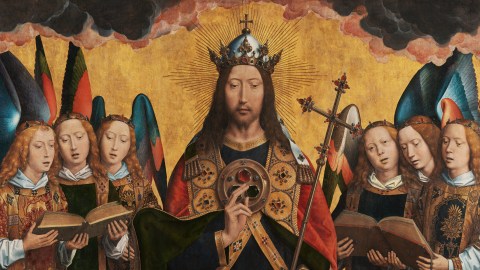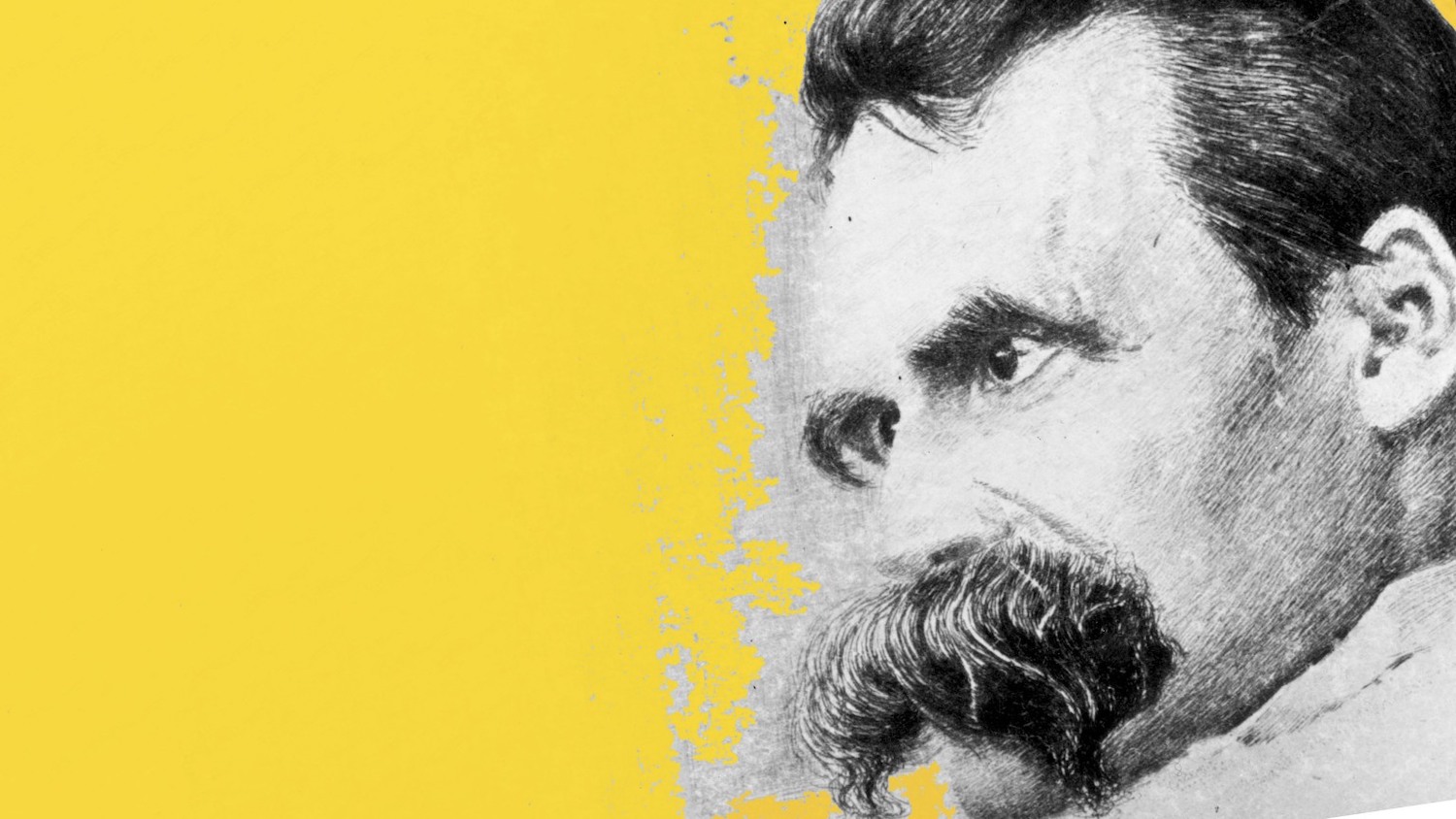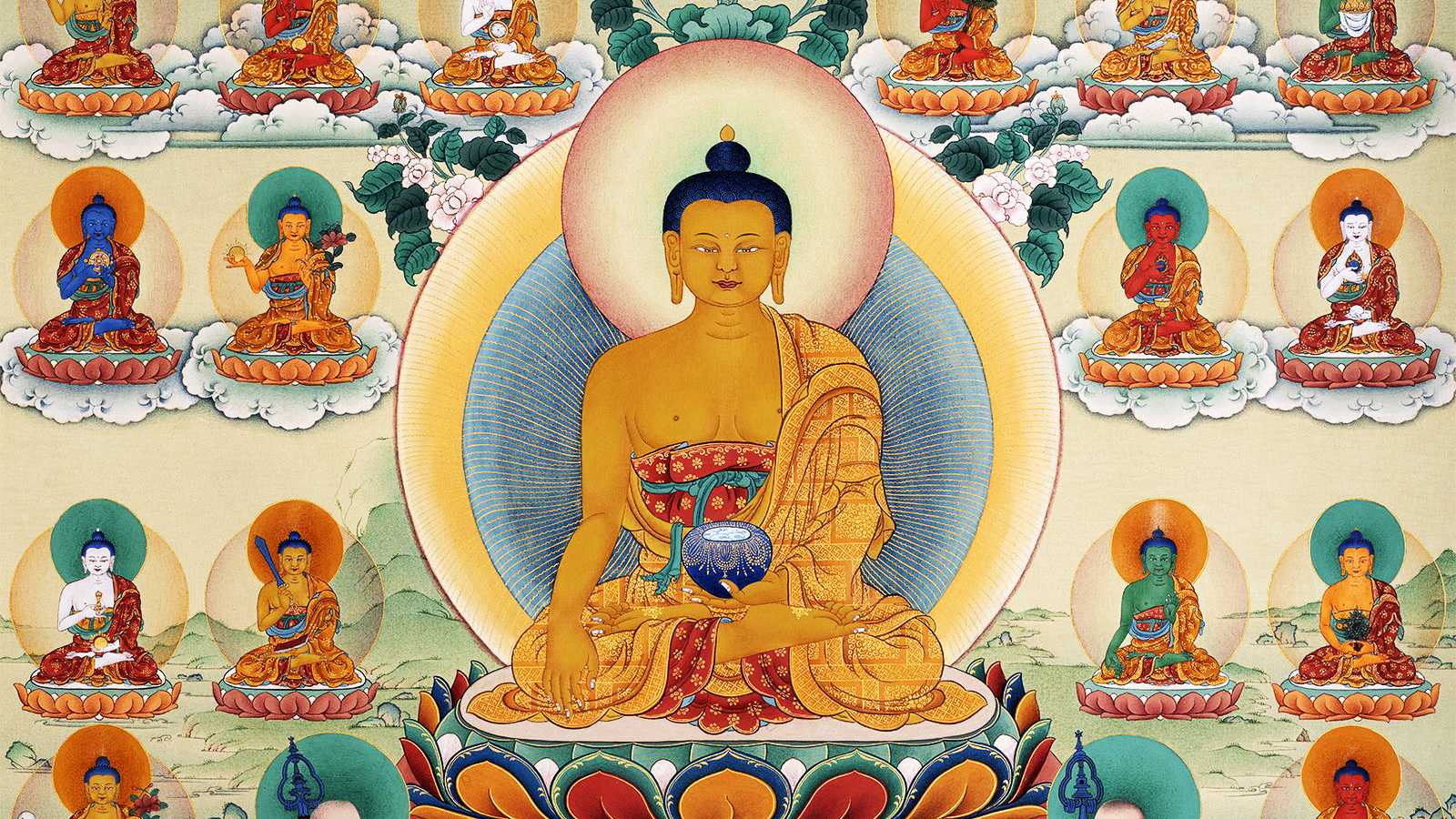5 arguments for and against the existence of God

- Philosophers have debated over the existence of God since the beginning of philosophy.
- Here are five arguments for and against the idea that at least one deity exists.
- Each argument has earned at least as many detractors as supporters.
One of the most enduring problems of philosophy is whether God exists. It has attracted the attention of some of the greatest minds across every philosophical tradition. Here, we look at five of the major arguments both for and against the existence of God.
The cosmological argument
The cosmological argument is fairly straightforward. A modern version of it reads:
- Whatever begins to exist must have a cause for its existence.
- The universe began to exist.
- Therefore, the universe must have a cause for its existence.
This line of reasoning generally continues until reaching the idea of an “uncaused cause” or “prime mover.”
Variations of the cosmological argument date as far back as Ancient Greece. Aristotle’s take is particularly influential, the Islamic philosopher Avicenna made a similar case, and St. Thomas Aquinas refined it. Its modern defenders include Robert Koons and William Lane Craig.
It certainly is intuitive. The idea of getting something from nothing — potentially including the entire cosmos — is unsatisfying. And until recently, philosophers viewed the idea of an infinite regress with extreme suspicion, further favoring the need for an uncaused creator. But like every other argument on this list, there are strong objections to this one.
David Hume argued that while we assume that everything in our lives has a cause, that assumption does not necessarily apply to the universe as a whole. If so, then there is no need for a prime mover. Bertrand Russell argued that if the universe’s proposed creator is exempted from needing a creator, then we can say the same for the universe itself. Others have pointed out that even if the cosmological argument has merit, it doesn’t tell us anything about any creator. For all we know, the universe might have been created by a group of depressed purple giraffes.
The problem of evil
The problem of evil is the most famous argument against the existence of an all-powerful and loving god. It’s also old. For example, it provides the central theme of the Book of Job in the Abrahamic traditions. But its best-known formulation came from the Greek philosopher Epicurus sometime around 300 BC.
In his words: “Is God willing to prevent evil but unable? Then he is not omnipotent. Is he able but not willing? Then he is malevolent. Is he both able and willing? Then whence comes evil?”
A modern variation by philosopher Paul Draper moves away from whether the problem renders a loving God logically impossible. His version leans toward the question of probability:
- Gratuitous evils exist.
- The hypothesis of indifference — that is, if there are supernatural beings, then they are indifferent to gratuitous evils — is a better explanation for the first point than theism.
- Therefore, evidence prefers that no God, as commonly understood by theists, exists.
On a more personal level, the French Catholic priest Jean Meslier denounced his theism because he saw the problem of evil as one of many proofs that no God existed. American philosopher John Rawls abandoned Christianity after witnessing the horrors of WWII and the Holocaust. But it was Holocaust survivor Primo Levi who put it most succinctly: “There is Auschwitz, and so there cannot be God.”
Of course, there are counterarguments to the problem of evil. The most famous is the argument from free will. Proponents of this take, such as St. Augustine, argue that the need for free will is great enough to allow certain evils to exist. These evils are caused primarily by the improper use of free will, and divine intervention against any evil caused by free will would be an even greater evil.
John Hick suggested that the existence of evil is necessary for the moral growth needed to develop a soul. Others have argued that evil, as an independent substance, does not exist, and still others claim that what evil does exist is the minimal amount logically possible.
It’s worth noting that the problem of evil only applies to certain conceptions of deities — notably all-powerful, all-knowing, and benevolent ones. The argument does not rule out the capricious Greek gods, Spinoza’s pantheism, or the disinterested God of the deists. The problem is less of a concern for many Eastern religions, too.
The teleological argument
Also known as “the argument from design,” the teleological argument claims the world’s complexity proves a designer exists. The argument is, again, rather straightforward:
- Human-made objects were created with intention, by design, and for a purpose.
- The universe resembles human-made objects in important ways.
- Therefore, it is probable that the universe was created with intention, by design, for a purpose.
- The universe is much more complex than human-made objects.
- Therefore, it is probable that a powerful being designed the universe.
This argument dates back to at least Socrates; however, the Stoic philosophers developed the argument into the forms we still see today. The Islamic philosopher Averroes endorsed it, a story about Rabbi Meir makes a direct reference to it, and even Issac Newton supported it. But the most famous version of it was put forward by William Paley. In his “watchmaker analogy,” he imagines what we would say if we had to explain how a watch we found on the ground got there. As he puts it:
“The inference we think is inevitable, that the watch must have had a maker — that there must have existed, at some time and at some place or other, an artificer or artificers who formed it for the purpose which we find it actually to answer …”
Of the arguments for the existence of a God, this one has perhaps the greatest connection to the parts of our lives outside of philosophy. It asks us to consider the world’s beauty, the depths of the mysteries of nature, the intricacies of the environment, and what those mean for how we understand the world and how it came to be.
Beautiful as that thought is, the teleological argument has still earned its detractors. As David Hume noted, this world is far from perfect, and if a deity made it, then that deity must be an “inferior” one. He also asserted that we cannot say if this universe is well designed as we haven’t seen any others. Voltaire pointed out that the designer in the argument doesn’t have to be a God. Meanwhile, other thinkers have argued that the analogy between man-made objects and the entirety of reality is invalid.
Russell’s teapot
One of the more whimsical arguments against the existence of any gods was put forward by Bertrand Russell. And like any member of the British aristocracy in good standing, the third Earl Russell invoked tea in his argument.
He asked his readers to suppose that he was seriously advancing the idea of a teapot floating in orbit around the sun. This teapot is also impossible to detect. The question then: Is it on you to disprove the impossibility of this teapot’s existence, or is it his responsibility to prove it is real?
Russell’s point was that anyone making such a claim is the one who must prove it — not the person objecting to it. And since nobody takes arguments of a space-faring teapot seriously, why then should we treat other such arguments as sacred? Perhaps the greatest legacy of the argument is its use as a tool to remind users where the burden of proof lies when an assertion is made. (And if you’re not into tea, Carl Sagan once made a similar point about the impossible-to-detect dragon living in his garage.)
The relevance of this analogy to existing religions has been debated. One common objection is it would be difficult to hide the evidence of sending a teapot to space. Another is that while no reasonable person is arguing that a star-trekking teapot exists, there are reasonable people who maintain there is a God.
The ontological argument
Our last argument is certainly the most abstract. It is also perhaps both the most interesting from a philosophical point of view and the easiest to dismiss as ridiculous. As Rene Descartes put it:
- If there is a God, it is a perfect being.
- A perfect being possesses all possible perfections.
- Existence is a perfection.
- Therefore, God necessarily possesses the quality of existence.
This is based on a similar argument advanced by St. Anselm. Avicenna made a related argument in the Islamic world, and the ancient Greek poet-philosopher Xenophanes authored similar ideas in some of the oldest extant philosophy. And in his younger years, Bertrand Russell was convinced by this argument — though, as you’ve probably guessed, he later rejected it.
The primary counterargument is that “existence” is not a part of the concept of something, a quality, or a predicate. This approach was first formulated by Immanuel Kant, a Christian himself. Russell came to agree with Kant, though he still found the original argument to be well structured.
St. Thomas Aquinas objected to Anselm’s version of the argument, as it more explicitly requires us to understand the essence of God. If this is impossible, as he and many subsequent thinkers maintained, the argument can’t prove anything. In modern times, William Rowe suggests that the argument presupposes the existence of God.




